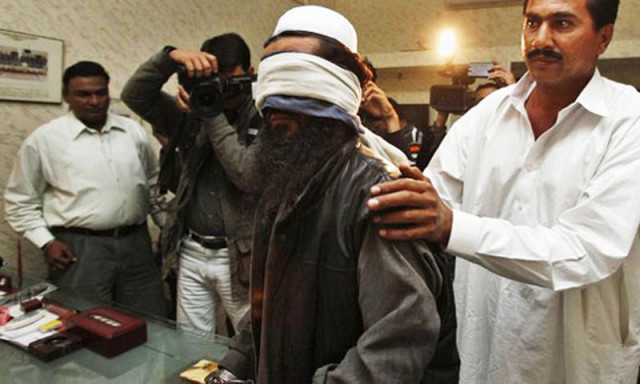Suspicion in Afghanistan grows as Baradar remains out of sight
Analysts say Baradar can play a positive role only if he enjoys ‘complete freedom’.

Analysts say Baradar can play a positive role only if he enjoys ‘complete freedom’. PHOTO: REUTERS/FILE
Suspicion over the release of Taliban’s former second-in-command Mullah Abdul Ghani Baradar is growing in Afghanistan as Afghan Taliban and Baradar’s family sources reveal he has not been allowed to rejoin his family as yet.
Though Pakistan claimed last month it had released the former Afghan Taliban leader, it is being reported the announcement may have been made before formally releasing him.
Afghan analysts and some Taliban leaders in Kabul believe Baradar could play an influential role in untangling the stalemate in peace talks and reviving the stalled process in Qatar if restrictions on his movement are removed. Islamabad’s intentions remain unclear and many Taliban leaders believe Pakistani authorities have simply moved him from one detention facility to another.

Pakistan’s foreign ministry officially confirmed the detainee’s release on September 21. Though he remains nowhere to be seen, his family members are seeking help from Afghan leaders who have good connections with their Pakistani counterparts. If released, Baradar will unite with his family after nearly four years in detention.
Afghan foreign ministry spokesperson Janan Mosazai said this week Kabul is awaiting Islamabad to honour its commitment over Baradar’s release. Mosazai’s statement has fueled speculations about a possible secret deal between the two neighbouring countries during President Hamid Karzai’s visit to Pakistan in August. Local officials remain tight-lipped, however, and anonymous security officials may be deliberately feeding contradictory reports to the media.

Analysts and former Afghan Taliban members, who have worked closely with Baradar in the past, claim Pakistan may be encouraging Baradar to act against the Taliban leadership under Mullah Mohammad Omar. This, they say, is a futile exercise.
“I don’t think Mullah Baradar Akhund will act against the wishes of Mullah Omar and the Islamic Emirate,” former Taliban leader Akbar Agha told The Express Tribune. Agha, who once headed the Taliban Shura (council) and fought alongside Baradar in Afghanistan’s Zabul province, remains optimistic over his former colleague’s role in the peace process.
“Baradar can strengthen and revive the stalled Qatar process if he is allowed to travel there. But if he is forced to move either to Turkey or any other country, it would be a blatant interference in the affairs of the Taliban,” said Agha. He also advised Pakistan to allow him to travel to Kabul.
“Mullah Baradar cannot be instrumental unless he is free and accessible to the outside world,” said Dr Farooq Azam, chairman of the Movement for Peaceful Transformation of Afghanistan.
Some Afghan analysts believe Pakistan may be pushing Baradar to set up a new political office, parallel to that in Qatar. They say Baradar is unlikely to agree to such a proposition.
“I think Baradar will be allowed to rejoin his family once he agrees to what Pakistan, President Karzai and the United States expect of him. But such pressure tactics will not work,” said Waheed Muzhdah, a former Afghan foreign ministry official who held office under Taliban rule. “Baradar is also being asked to move to Turkey to join former Taliban leader Agha Jan Mutasim to launch a new political movement.”
The former head of Taliban’s political commission, Mutasim resides in Turkey and is backed by Karzai’s government. He frequently visits the United Arab Emirates to meet former Taliban leaders to try and sway them from the insurgent movement.
Muzhdah feels the Taliban will disown Baradar if he decides to act contrary to the policy and wishes of Mullah Omar of not talking to Karzai and his High Peace Council. Mutasim has also so far failed to convince Taliban leaders to jump ship and talk peace. He recently met former Taliban governor of Kabul, Abdul Manan Niazi, and former consul general Rehmatullah Kakazada along with a few others in Dubai. These attempts, too, were unsuccessful.
Karzai and his American backers have been interested in moulding the opinion of Taliban dissidents in their favour in order to divide the insurgents. Many feel Pakistan’s attempts to do the same will also fail to yield desirable results.
Published in The Express Tribune, October 5th, 2013.













COMMENTS
Comments are moderated and generally will be posted if they are on-topic and not abusive.
For more information, please see our Comments FAQ